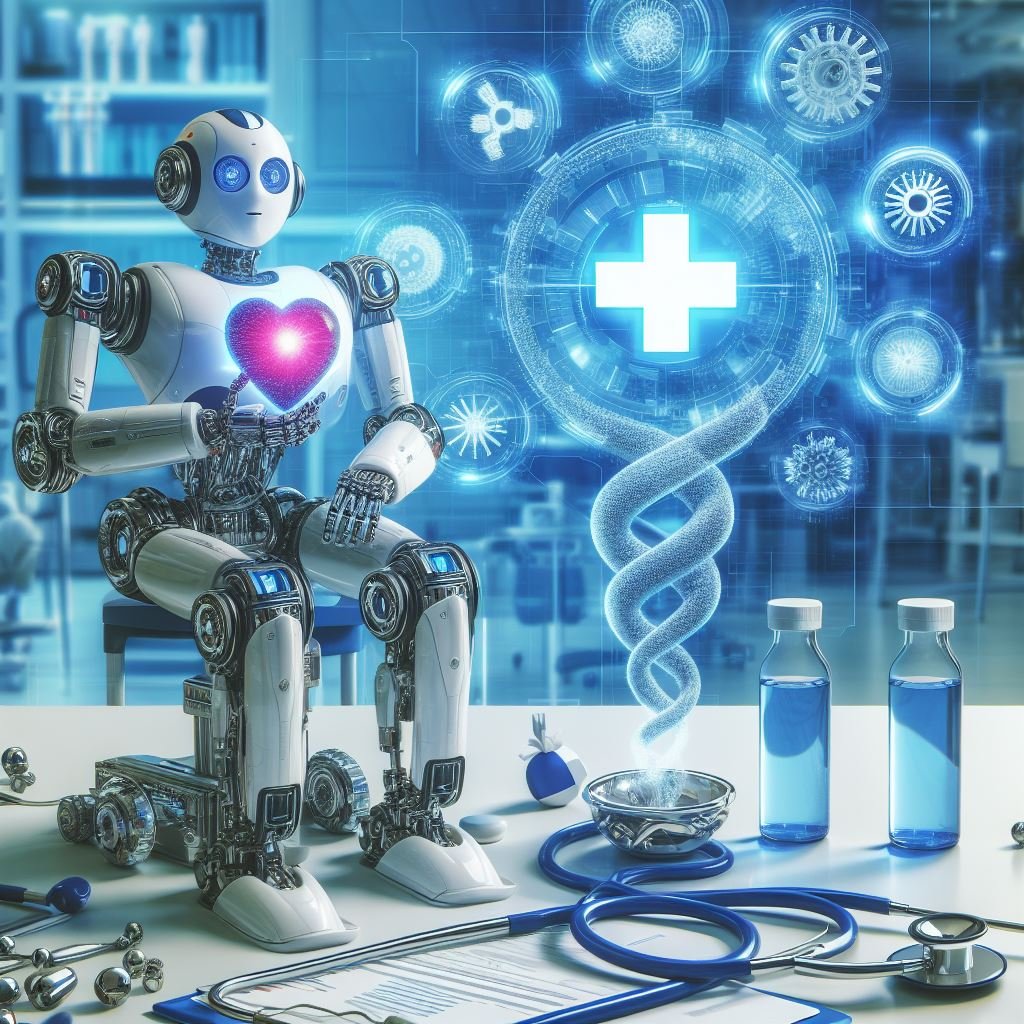In recent years, the integration of robotics into various sectors has transformed industries and revolutionized traditional processes. The medical field is no exception, with robots playing an increasingly significant role in diagnosis, treatment, surgery, and patient care. From precision surgeries to automated medication dispensing, the use of robots in healthcare is poised to reshape the industry in profound ways, enhancing efficiency, accuracy, and patient outcomes.
1. Enhancing Surgical Precision:
Robotic-assisted surgery has emerged as a game-changer in the medical field, allowing for unparalleled precision and control during complex procedures. Systems like the da Vinci Surgical System enable surgeons to perform minimally invasive surgeries with enhanced dexterity and visualization. These robotic systems utilize advanced imaging technology and computer-assisted navigation to guide surgeons with precision, resulting in smaller incisions, reduced trauma, and faster recovery times for patients.
2. Improving Diagnosis and Treatment:
Robots are increasingly being utilized in diagnostic procedures, contributing to more accurate and timely assessments of various medical conditions. For instance, robotic imaging systems can produce high-resolution images for better visualization of internal organs and tissues, aiding in the early detection of diseases such as cancer. Additionally, robots are employed in radiation therapy to precisely target tumors while minimizing damage to surrounding healthy tissue, improving treatment outcomes for cancer patients.
3. Automating Repetitive Tasks:
In healthcare settings, robots are employed to automate repetitive tasks, freeing up healthcare professionals to focus on more complex aspects of patient care. Automated dispensing systems in pharmacies and hospitals ensure accurate medication dosage and reduce the risk of human error in medication administration. Similarly, robotic systems are utilized in laboratory settings for sample handling, processing, and analysis, leading to faster turnaround times for diagnostic tests and improved efficiency in healthcare operations.
4. Enhancing Rehabilitation and Physical Therapy:
Robotic technology is also making significant strides in the field of rehabilitation and physical therapy, aiding patients in their recovery from injuries or surgeries. Robotic exoskeletons and rehabilitation devices provide support and assistance to individuals with mobility impairments, helping them regain strength, coordination, and independence. These devices offer personalized rehabilitation programs tailored to each patient's needs, resulting in improved outcomes and enhanced quality of life.
5. Facilitating Remote Healthcare Delivery:
With the advancement of telemedicine and remote healthcare services, robots are playing a crucial role in facilitating virtual consultations and remote patient monitoring. Telepresence robots equipped with cameras and screens enable healthcare providers to interact with patients in remote locations, offering medical expertise and assistance in real-time. These robots bridge geographical barriers, allowing patients to access healthcare services from the comfort of their homes while ensuring continuity of care.
6. Addressing Staff Shortages:
The healthcare industry is facing significant challenges related to staffing shortages, especially in critical areas such as nursing and eldercare. Robots are increasingly being utilized to augment the capabilities of healthcare professionals and alleviate the burden of understaffed facilities. For instance, robotic caregivers assist elderly patients with daily tasks, such as medication reminders, mobility assistance, and companionship, thereby reducing the strain on healthcare personnel and improving the quality of life for aging populations.
7. Ensuring Sterile Environments:
Maintaining sterile environments is essential in healthcare settings to prevent the spread of infections and ensure patient safety. Robots equipped with disinfection technology, such as ultraviolet (UV) light or hydrogen peroxide vapor, are utilized to sanitize hospital rooms, surgical suites, and medical equipment effectively. These autonomous disinfection robots eliminate harmful pathogens and reduce the risk of healthcare-associated infections, contributing to better infection control practices and improved patient outcomes.
8. Advancing Medical Research and Innovation:
Robotic technology is driving innovation in medical research and development, enabling scientists and researchers to explore new frontiers in healthcare. Robotic systems are utilized in laboratory automation, drug discovery, and genetic analysis, accelerating the pace of medical breakthroughs and the development of novel therapies. Additionally, robots are employed in surgical simulation and training programs, allowing aspiring surgeons to hone their skills in a safe and controlled environment before operating on live patients.
Conclusion:
The integration of robots into the medical industry is transforming healthcare delivery, improving patient outcomes, and enhancing the efficiency of healthcare operations. From precision surgeries to remote patient monitoring, robots are revolutionizing every aspect of healthcare, enabling healthcare professionals to deliver high-quality care with greater precision and effectiveness. As technology continues to advance, the role of robots in healthcare is expected to expand further, ushering in a new era of innovation and progress in the medical field. By embracing robotic technology, the healthcare industry can unlock new possibilities and achieve better health outcomes for patients worldwide.
#RoboticsInHealthcare #MedicalInnovation #SurgicalPrecision #DiagnosticRobots #AutomatedMedicine #RehabilitationTech #TelemedicineRevolution #StaffShortageSolution #HealthcareInnovation #PatientCare #RoboticAssistance #FutureOfHealthcare #PrecisionMedicine #RoboticsTechnology #RemoteHealthcare #InfectionControl #MedicalAdvancements #HealthTech #amoltechnicalguru #7447253589 Amol Technical Guru #amolhajan380#SterileEnvironments #MedicalResearch

